Two massive explosions that took place on Wednesday not just shook the Lebanese capital city of Beirut but, the whole world.
ROCKED: Eyewitness video shot from a boat off Beirut shows a dramatic new angle of the explosion that killed at least 160 people and injured thousands, with the Lebanese government resigning on Monday amid anger and unrest in the wake of the blast. https://t.co/6tgFYYPUPA pic.twitter.com/vjlwKm4brS
— ABC News (@ABC) August 11, 2020
The blast with the force of a 3.5 magnitude earthquake is believed to be heard and felt as far away as Cyprus, more than 200 kilometres across the Mediterranean. The huge blast killed 145 people, injured 5,000, flattened buildings and made more than a quarter of a million people homeless.
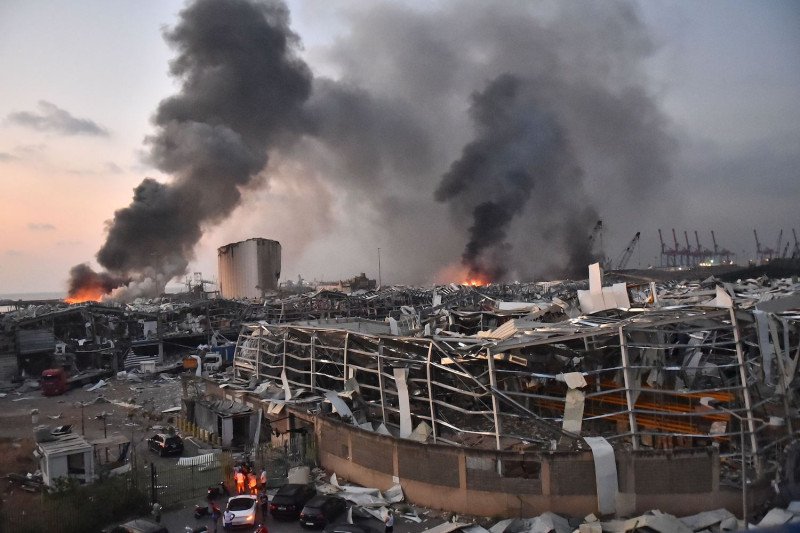
Lebanon’s prime minister, Hassan Diab on 6th August said the main blast at Beirut’s port was caused by the detonation of an estimated 2,750 tons of ammonium nitrate that had been stored in a warehouse at the dock ever since it was confiscated from a cargo ship in 2014 without any precautionary measures being taken.
The chemical responsible for the blast arrived in Beirut seven years ago on a leaky Russian-leased cargo ship that wasn’t supposed to stop at the port.
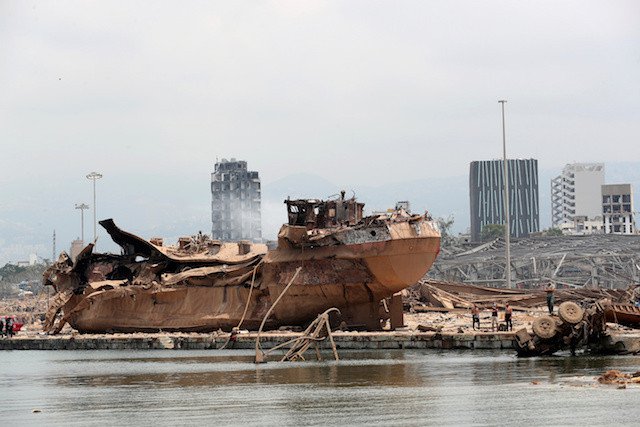
Boris Prokoshev, the captain of the Rhosus, the ship, in 2013 said that the owner told him to make an unscheduled stop in Lebanon to pick up extra cargo.
He said that the ship carrying 2,750 tonnes of highly combustible chemical came from Georgia and was supposed to go to Mozambique when the order came to divert to Beirut on its way through the Mediterranean.
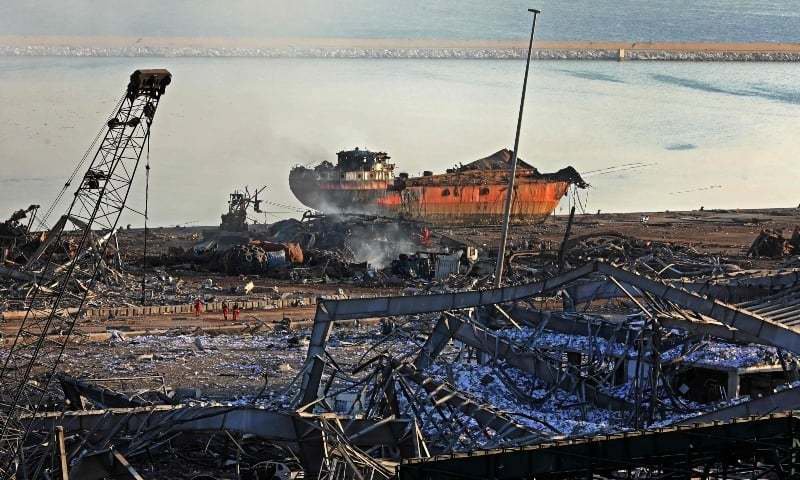
The crew were asked to load some heavy road equipment and take it to Jordan’s Port of Aqaba before resuming their journey to Africa, where the ammonium nitrate was to be delivered to an explosives manufacturer.
But the ship could never leave Beirut, having tried and failed to safely load the additional cargo before becoming embroiled in a lengthy legal dispute over port fees. He said it was impossible to try and load the extra cargo as it could have ruined the whole ship.
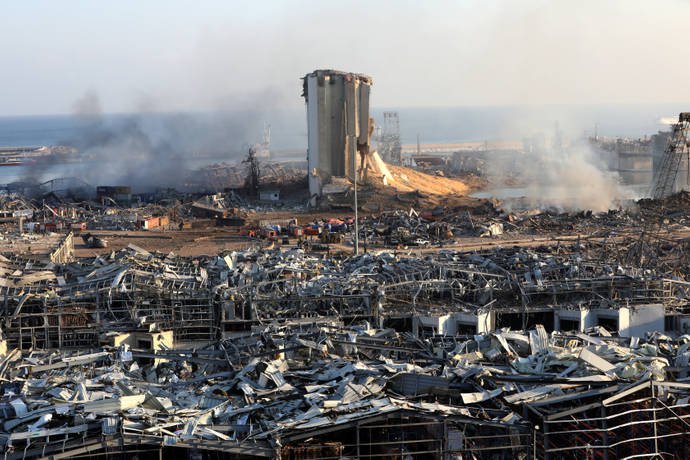
The captain and lawyers acting for some creditors, accused the ship’s owner of abandoning the vessel and got him arrested. Months later, for safety reasons, the ammonium nitrate was unloaded and put in a dock warehouse.
The captain and three crew spent 11 months on the ship while the legal dispute dragged on, without wages and with only limited supplies of food. Once they left, the ammonium nitrate was unloaded.
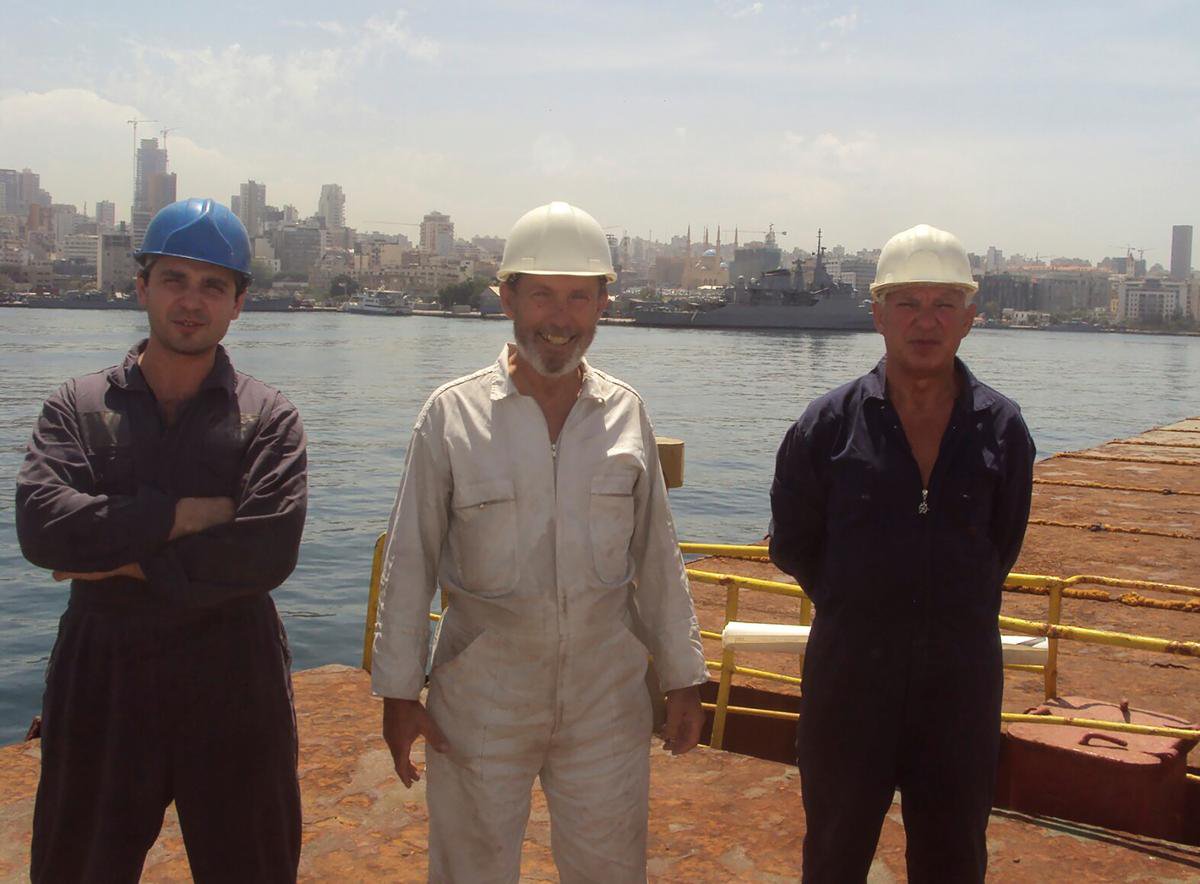
The abandoned Rhosus sank where she was moored in Beirut harbour, according to a May, 2018 email from a lawyer to Prokoshev, which said it had gone down “recently”. On Tuesday, that stockpile caught fire and exploded not far from a built-up residential area of the city.

















